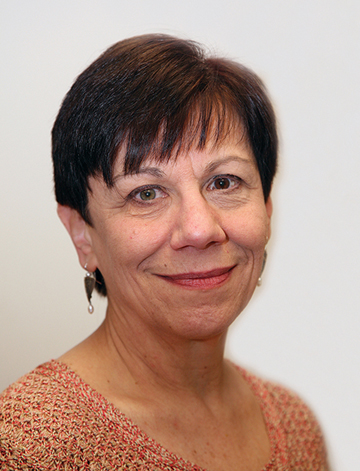Faculty Retirement: Jeanne Marecek
 A Founder of Women’s Studies—Jeanne Marecek
A Founder of Women’s Studies—Jeanne Marecek
When Jeanne Marecek joined Swarthmore’s Psychology Department in fall 1972, there were just 18 women among 128 tenured and tenure-track faculty members—and just two full professors, Hilde Cohn (German) and Helen North (Classics).
Marecek was 25, barely older than her first students and months shy of completing a Ph.D. at Yale, when then-chair Ken Gergen, now Gil and Frank Mustin Professor Emeritus of Psychology, asked her to teach a course on the psychology of women—perhaps the first “women’s studies” course at the College.
“It was a great class,” recalls Marecek, the William R. Kenan Jr. Professor Emerita of Psychology, who retired in June, “even though there was no literature to read. We were stuck with reading orthodox psychology—Freudian psychoanalysis, work speculating on the brain bases of women’s intellectual inferiority and excess emotionality, and so on—so we set about critically analyzing it from the standpoint of popular feminism and scientific adequacy.”
The course evolved from Psychology of Women (“as if women have a psychology that’s different from men”) to Psychology and Women, then more recently to Psychology and Gender. “We’re not putting people in boxes and asking how they are the same and how they are different,” Marecek explains. “We study gender as an identity that emerges in the context of social relations, and we look at the larger cultural and social processes that create masculinities and femininities as we know them.”
As a scholar, Marecek has been at the forefront of research of the representation of women in psychological theory, gender theory in psychology, and feminist theory. She is also an expert in cross-national studies of suicide and cultural psychology, having done significant work in Sri Lanka and Sweden.
She credits the intellectual environment of Swarthmore for enabling her to explore far and wide in both her travels and her research. The College’s interdisciplinary programs, specifically Women’s Studies (now Gender and Sexuality Studies) and Asian Studies, were crucial in shaping both her teaching and her research. Marecek is the co-editor of Making a Difference: Psychology and the Construction of Gender. She also co-authored “Abnormal and Clinical Psychology: The Politics of Madness,” a chapter in the text Critical Psychology. She was also a contributor to the handbook Women and Depression. Gender and Culture in Psychology: Theories and Practices, co-authored with a Swedish colleague, was published in October in Sweden; the English-language version will soon follow.
“My students have changed a lot,” she says. “[The women] certainly feel less embattled than they did in 1972. They believe that all doors will be open to them.” But sometimes, Marecek says, today’s young women are “so involved in being excellent students and preparing for a career that they’re not thinking in any concrete way about combining those careers with raising kids. And, if for no other reason than fulfilling those aspirations, they should be thinking about the woefully inadequate supports we provide for parents in the work force and about what it would take to share childcare and housework in a truly equitable way with their partners. These are huge unsolved issues for parents in the United States.”
As she contemplated clearing out her cluttered office and moving her possessions to California, where she and three friends have bought a house together—“a sort of intentional retirement community,” she says—I asked Marecek how it might be different for a 25-year-old woman joining the Swarthmore faculty in 2010. “You’d have lots of women as colleagues, and your identity as a woman wouldn’t be so salient to you and to others. You wouldn’t continually be confronted with difference and marginalization and skepticism—with whether you really belonged here or not,” she mused. “And, of course, the College now has plenty of strong and respected women leaders—department chairs as well as women in senior positions in the administration, right up to the president. That makes a big difference. That’s progress.”
 Email This Page
Email This Page